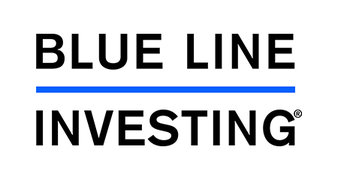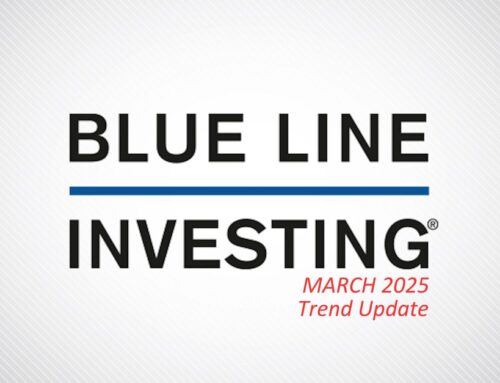
Blue Line Investing, Article 8 of 12
For as long as we can remember the investment industry has maintained a standard investment practice with how they apply active management to their client investment accounts. But we believe in recent years it appears the industry may be questioning how effective it is over the long run. This practice consists of substituting investments rather than selling investments. Understanding this difference can have a material impact on your rate of return over the long run, especially when the primary trend of the market changes from positive to negative.
We will use the game of soccer to illustrate the substitution strategy. During a game the players get tired. So when the coach makes a substitution he is effectively exchanging one player for another. After the substitution the number of players on the field remains the same. Compare this with how active management is conducted at many investment firms and financial institutions today. They, like coaches in the game of soccer, are making substitutions to investments. For instance, they remove the ABC Growth fund owned within their client investment portfolio to replace it with the XYZ Growth fund. Or, maybe they might become displeased with the performance results from the 123 Real Estate fund and substitute it for the 456 Real Estate fund. In effect, like the players on a soccer field, the substitution strategy keeps all money fully invested within the portfolio at all times regardless of whether the primary investment trend is positive or negative.
Continuing with our soccer analogy, during play one of the players might receive a red card from the referee, resulting in their ejection from the field. Should this happen there will be no substitution of players. The team loses that player and must continue the game playing one man down. While not a perfect analogy, we liken this to the idea of a sell rather than a substitution change. We believe improvements to clients’ long-term rates of return can be made by making sell decisions rather than substitution changes. In other words, when the primary trend of the market is negative, then doesn’t it seem logical to keep the proceeds from a sell decision in cash rather than reinvesting it immediately into another similar investment? Of course, this all depends on the primary trend of the market.
For instance, consider when stock markets were in primary negative trends, like 2000-2002 or 2008-2009 (which coincided with the broad market remaining below the blue line for the duration of the stock market decline). By substituting risk investments like stocks, the value of your investment portfolio is likely going to decline along with the stock market decline. But by taking the approach of making a sell decision and keeping the proceeds in cash you could afford yourself the opportunity to reinvest the proceeds at cheaper prices in the future after the primary negative trend is exhausted. After all, isn’t the old adage, “Buy low, sell high?”
We believe that during a rising stock market a substitution strategy will work fine and likely result in financial gains for investors. But when markets change from positive to negative primary trends, the substitution process will likely result in losses, which could be material depending on the extent of the market downturn. We believe a successful investment process must have a sell discipline to reduce risk to the overall investment portfolio and this will be discussed further in our next article.
Disclaimer:
Past performance is not indicative of future results. This material is intended for educational purposes only and is not financial advice or an offer to buy or sell any product. The investment strategy discussed may not be suitable for all investors. Investors must make their own decisions based on their specific investment objectives and financial circumstances. The opinions expressed are those of Blue Line Investing and are not necessarily those of Gordon Asset Management, LLC and are subject to change without notice. Blue Line Investing reserves the right to modify its current investment strategies based on changing market dynamics or client needs. Advisory services offered through Gordon Asset Management, LLC (GAM). GAM is an SEC-registered investment adviser. Registration does not imply a certain level or skill or training. More information about the advisor, its investment strategies and objectives, is included in the firm’s Form ADV Part 2, which can be obtained, at no charge, by calling (866) 216-1920. The principle office of Gordon Asset Management, LLC is located at 1007 Slater Road, Suite 200, Durham, North Carolina, 27703.



